Android Bugreport Analysis
Understanding the inner workings of an Android device is crucial for diagnosing complex issues. An Android bugreport captures a device's state at a specific moment, providing invaluable data for developers and testers.
This guide details how to use HexDroid to upload and perform Android bugreport analysis. HexDroid helps with debugging workflows by automatically processing and visualizing critical diagnostic data from Android Bug Report.
For example, it helps analyze native crashes (tombstones), Application Not Responding (ANR), SELinux denials, analyzing key system metrics like CPU usage, memory consumption, UI performance (gfx), and battery statistics to effectively debug Android issues.
Upload bugreport
Android Bug Reports can be manually uploaded through the HexDroid web interface.
To upload a bug report, follow these steps: navigate to Reports -> Android Bugreport -> Upload.

You can then select the appropriate bug report file (.zip or .txt) for upload.
Once the upload is complete, HexDroid will generate a permalink to the report, along with a visual summary of the Android bug report.
Bugreport can be generated with adb using the following commands:
adb bugreport(Preferred)adb bugreport > bugreport.txtadb shell dumpsys > dumpsys_report.txt- Or in
Settings->Developer Options->Bug report
Tombstones (Native Crashes)
Native crashes, commonly referred to as tombstones, occur in C++ applications.
HexDroid provides a concise summary of recorded tombstones on the device, offering key details at a glance:

- The backtrace of the thread that triggered the abort
- The name of the thread responsible for the crash
- The abort message (e.g.,
terminating with uncaught exception of type std::length_error: basic_string) - The application's uptime at the time of the crash
- Metadata about the build when the crash happened
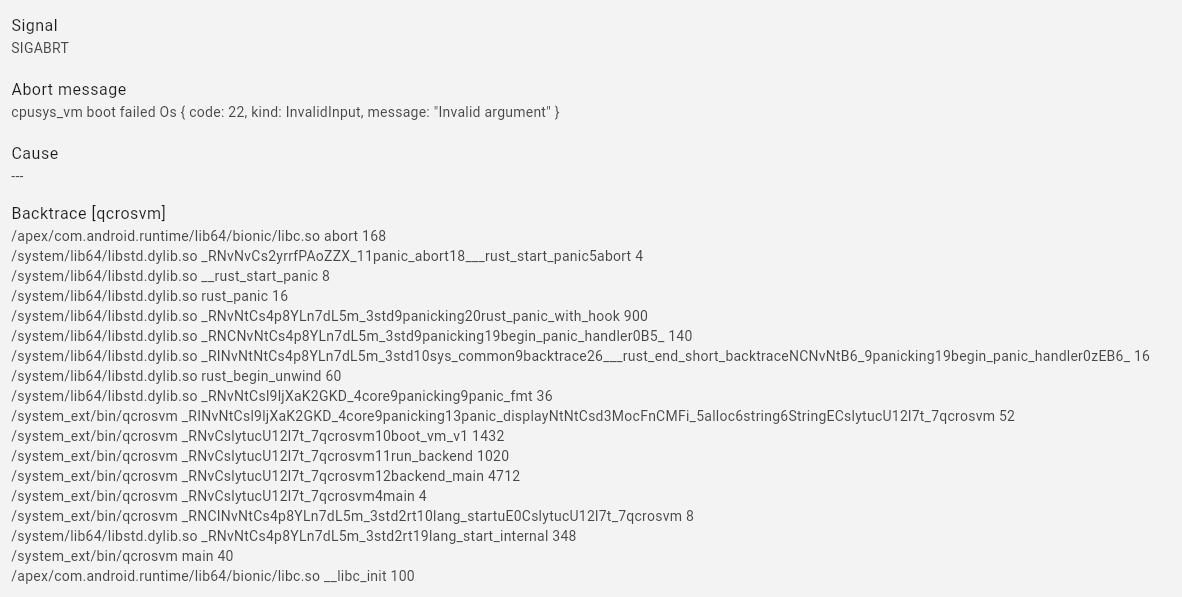
Additionally, HexDroid groups similar tombstones, making it easier to determine whether a crash is recurring frequently or occurring sporadically.
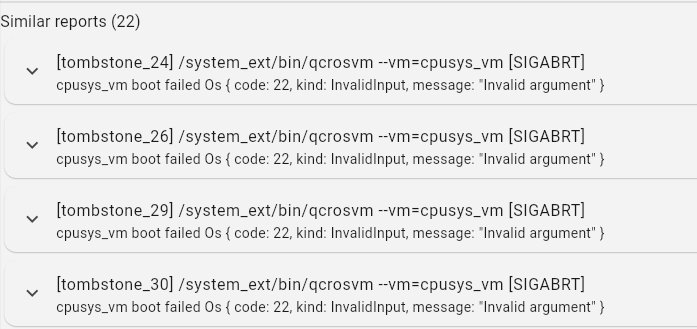
ANRs (Application Not Responding)
Android ANR (Application Not Responding) is an error that is triggered when an application becomes unresponsive for a certain period.
HexDroid offers a summary of each recorded ANR on the device,
highlighting the main thread stack trace at the moment the ANR occurred.
This enables developers to quickly pinpoint where in the application the issue arose, facilitating a clearer
understanding of the root cause of the ANR.
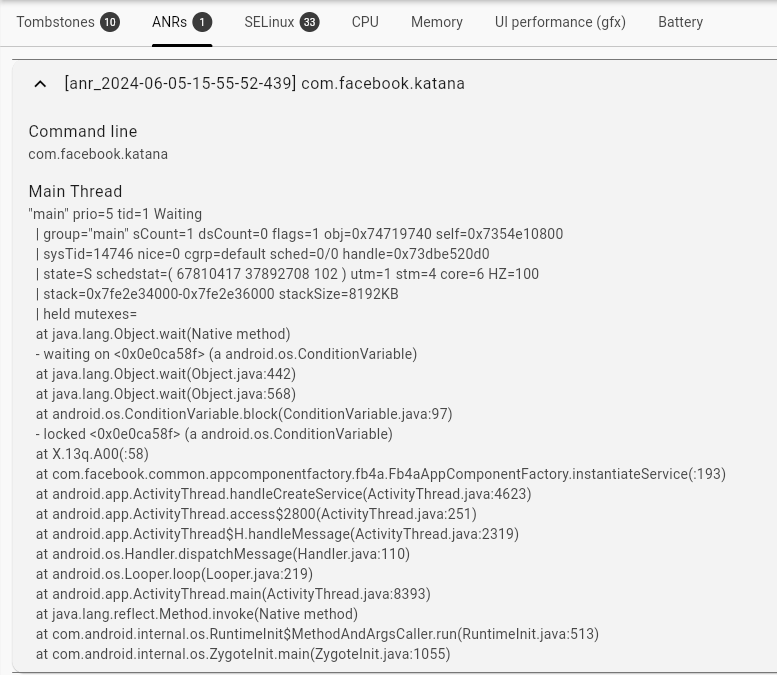
SELinux
A common challenge during the initial stages of product development or when migrating to a new AOSP base is ensuring comprehensive coverage of all SELinux policies required by applications and services.
SELinux denials can often go unnoticed for extended periods, particularly when running in Permissive mode during development or due to insufficient data from test devices when SELinux violations occur.
HexDroid consolidates all SELinux denial events identified in bug reports and presents them in a searchable, organized
list.
This functionality facilitates a streamlined review process, allowing you to quickly ascertain whether a policy is
missing or if a denial is expected.

HexDroid also provides a summary of SELinux violations, detailing how frequently each specific violation occurs within the bug report.
This allows developers to quickly assess whether certain violations are isolated incidents or recurring issues.
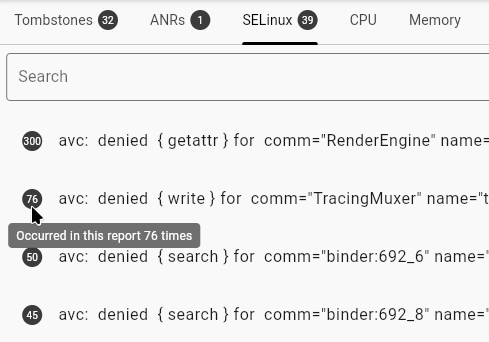
UI performance (gfx)
Android gfxinfo service provides output with performance information relating of application frames,
HexDroid visualizes gfx info data into a report which can show at a glance how application was behaving.
Key metrics:
- Frame rendering times
- Jank frames breakdown
- Frame histogram
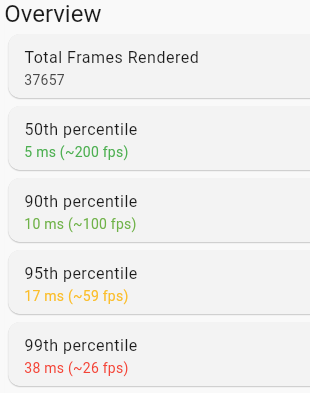


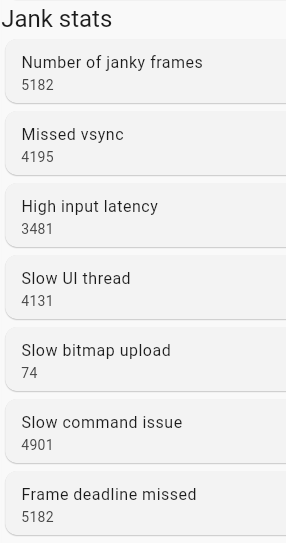
Battery
Selecting "Battery" from bugreport analysis will show breakdown for a selected time range:

Example of charge timeline:

Example of discharge timeline:
